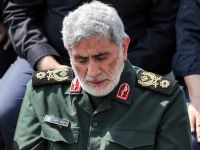Kuwait is looking to introduce a sales tax in January 2018 in co-ordination with other Gulf states, a senior official has confirmed. The move is expected to help the country diversify and boost income following a slump in oil revenues.
“All of us [the Gulf Cooperation Council countries] have decided to go for January 2018, although this has to pass through the National Assembly so it may take time,” deputy prime minister, finance minister and acting oil minister Anas Al Saleh said at a recent MEED conference.
Kuwait may also look to cut subsidies in a bid to reduce spending.
Some 70 per cent of Kuwait government subsidies go to electricity and gasoline, and the government is now keen to discuss the issue with the National Assembly, he said.
The minister also asserted that Kuwait will continue to push ahead with its infrastructure projects despite the slump in oil prices.
“We will continue to spend on our infrastructure projects, as planned. We have never seen such high levels of capital expenditure [despite low oil prices].
“We are focusing on infrastructure projects that work best and avoiding falling into the trap of economic stagnation because Kuwait’s economy depends on government expenditure. We are on full throttle and not holding back,” he added.
Kuwait awarded contracts worth $31bn last year, according to MEED Projects. It also has about $150bn worth of planned projects in the pipeline.
Al-Saleh added that any potential spending deficit could be covered by tapping into Kuwait’s financial reserves and going to the bond market.
“We are building our debt management strategy, and we have everything on the table. We can use financial reserves from the good years mixed with issuing some sovereign bonds in the local and international markets.”
Capital markets will also be used, he added.
Al Saleh also stressed that Gulf state would remain focussed on boosting public-private partnerships. Even if oil prices returned to levels above $100 a barrel, the state was committed to expanding private sector participation in the local projects market, he said.
Kuwait’s KD 6bn ($19.9bn) PPP programme is being overseen by the Kuwait Authority for Partnership Projects.
Under the state’s PPP law, project companies should hold an initial public offering after their selection on a PPP project.
Al Saleh said this was a good way of spreading the benefits of private sector project participation to the local population.








